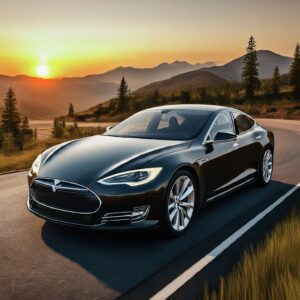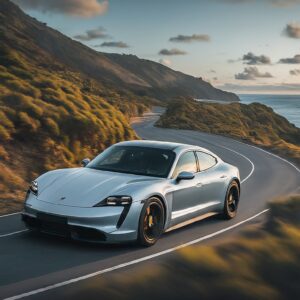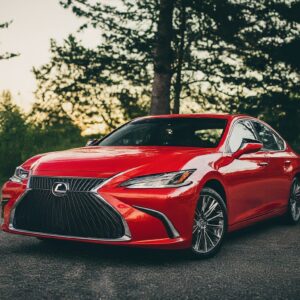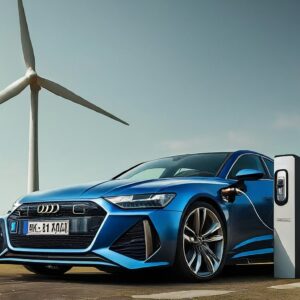Eco-Friendly Luxury: The Rise of Electric and Hybrid Vehicles in the Premium Market
In recent years, the luxury automobile industry has embraced a significant transformation towards sustainability. With growing environmental concerns and a shift in consumer preferences, luxury car brands are leading the charge in integrating eco-friendly technologies and practices. In this blog, we’ll explore the world of electric and hybrid luxury vehicles and examine how top-tier brands are committing to sustainable production practices.
Electric Luxury Cars: Driving the Future
The advent of electric vehicles (EVs) has revolutionized the automotive landscape, and luxury brands are at the forefront of this change. Electric luxury cars combine high performance with zero emissions, offering a compelling choice for environmentally conscious consumers who refuse to compromise on style and comfort.
1. Tesla Model S Plaid

Tesla’s Model S Plaid is a prime example of how electric technology can deliver exhilarating performance without sacrificing eco-friendliness. With a range of over 390 miles on a single charge and a 0-60 mph acceleration in under 2 seconds, the Model S Plaid is both a technological marvel and an environmental statement. Its minimalist design and cutting-edge autopilot features further enhance its appeal to luxury buyers.
2. Porsche Taycan

The Porsche Taycan brings the brand’s iconic driving dynamics into the electric realm. With a range of around 275 miles and rapid charging capabilities, the Taycan offers a thrilling driving experience while maintaining a commitment to sustainability. Its design reflects Porsche’s dedication to blending performance with eco-conscious engineering.
3. Audi e-tron GT

The Audi e-tron GT combines elegant design with impressive electric performance. Boasting a range of approximately 238 miles and a sophisticated interior, the e-tron GT delivers both luxury and eco-friendliness. Audi’s focus on high-quality materials and advanced technology makes it a standout in the electric luxury segment.
Hybrid Luxury Vehicles: The Best of Both Worlds
Hybrid vehicles offer a versatile solution for those who seek a balance between traditional combustion engines and electric power. Luxury hybrids provide the benefits of improved fuel efficiency and reduced emissions while retaining the performance and refinement expected from premium brands.
1. BMW i8

The BMW i8 is a striking plug-in hybrid that combines futuristic design with hybrid efficiency. Its turbocharged engine and electric motor deliver a combined output of 369 horsepower, providing an engaging driving experience with a reduced environmental footprint. The i8’s innovative design and advanced technology showcase BMW’s commitment to sustainable luxury.
2. Lexus LC 500h

The Lexus LC 500h is a luxury hybrid that seamlessly blends performance with eco-consciousness. Its Multi Stage Hybrid System enhances driving dynamics while improving fuel efficiency. The LC 500h’s sophisticated design and premium interior make it a desirable choice for those who value both style and sustainability.
3. Mercedes-Benz S 580e

The Mercedes-Benz S 580e represents a luxury plug-in hybrid that emphasizes comfort and efficiency. With a range of up to 60 miles on electric power alone, the S 580e offers a smooth and refined driving experience. Mercedes-Benz’s attention to detail and advanced technology ensure that this hybrid model meets the high standards of luxury buyers.
Sustainable Practices in Luxury Car Production
Beyond developing eco-friendly vehicles, luxury car brands are also focusing on sustainability in their manufacturing processes. Here’s how some leading brands are integrating sustainable practices:
1. BMW’s Sustainable Production

BMW is committed to reducing its environmental impact through sustainable production methods. The company has implemented initiatives such as using recycled materials in vehicle production, reducing water consumption, and optimizing energy efficiency in manufacturing plants. BMW’s i Series, including the i4 and iX, exemplifies their dedication to eco-friendly practices.
2. Audi’s Carbon Neutral Goal

Audi has set an ambitious goal to achieve carbon neutrality across its entire production network by 2035. The company is investing in renewable energy sources, improving energy efficiency, and implementing recycling programs. Audi’s commitment to sustainability is reflected in their production processes and the development of electric vehicles like the e-tron GT.
3. Mercedes-Benz’s Circular Economy

Mercedes-Benz is embracing a circular economy approach, focusing on recycling and reusing materials to minimize waste. The brand is working towards integrating sustainable materials, such as recycled plastics and renewable resources, into their vehicle production. Mercedes-Benz’s efforts in sustainability extend to their manufacturing practices and product design.
Conclusion
The luxury automotive sector is undergoing a significant shift towards eco-friendliness, driven by innovations in electric and hybrid vehicles and sustainable production practices. Brands like Tesla, Porsche, Audi, BMW, Lexus, and Mercedes-Benz are leading the way in creating high-performance, stylish, and environmentally conscious vehicles.
As consumers increasingly prioritize sustainability, luxury car manufacturers are responding with a range of options that blend elegance with eco-friendly technology. Whether you’re drawn to the electrifying performance of an electric vehicle or the versatile efficiency of a hybrid, the future of luxury cars is not only about indulgence but also about responsibility.


Leave a Reply